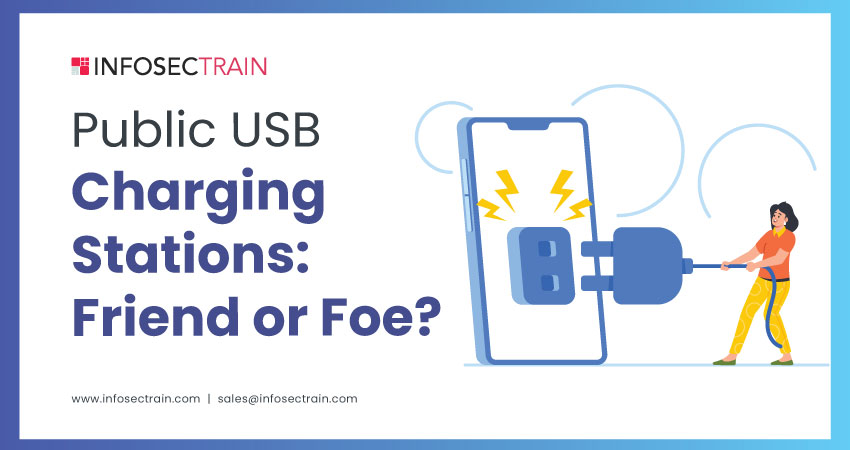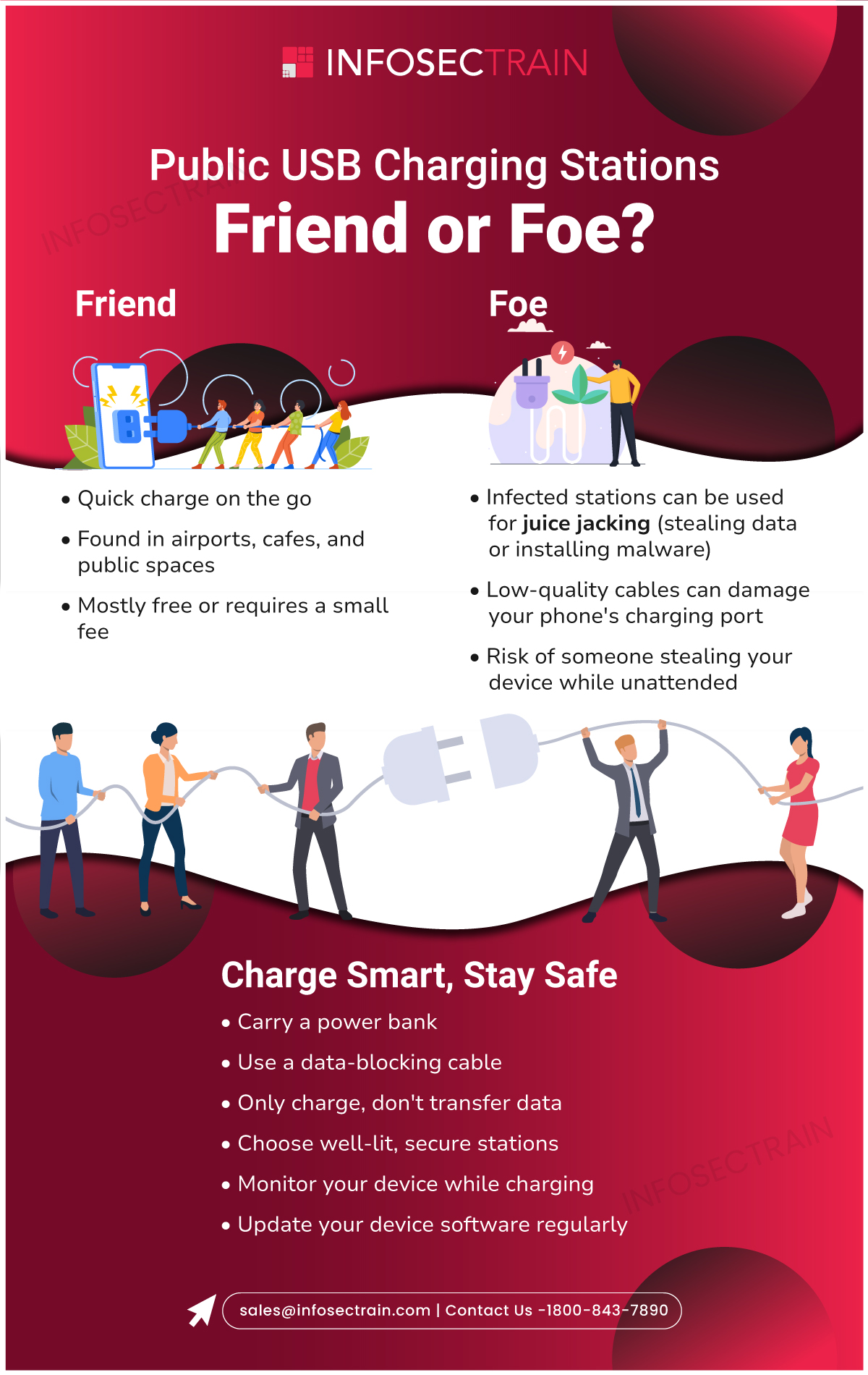Public USB Charging Stations: Friend or Foe?
Our dependence on smartphones, laptops, and tablets is undeniable. These versatile devices connect us to the world with just a few clicks. However, their reliance on batteries can be inconvenient, especially when they run out of power at inopportune moments. Public USB charging stations emerged as a solution, offering a convenient way to recharge on the go. But while the idea of charging your device in a pinch sound appealing, these stations also come with potential security risks. This blog addresses the common question many of us ask- Is it safe to charge a phone at a public station?

Benefits of Public USB Charging Stations
- Convenience: Public USB charging stations offer on-the-spot charging for people who are out and about and need a quick boost for their devices. This can be particularly helpful at airports, train stations, cafes, and other public spaces where users might spend extended periods.
- Accessibility: Public USB charging stations eliminate the need to carry a power bank or charger, reducing the burden for users traveling light or forgetting their charging equipment. This can be especially beneficial for tourists or those who rely on their devices for work or emergencies.
- Cost-Effectiveness: Public USB charging stations are often free to use or require a minimal fee, making them a much more affordable option compared to purchasing a power bank or replacing a dead battery. This is an advantage for budget-conscious users.
- Promotes Mobile Device Use: Public USB charging stations can encourage wider adoption and use of mobile devices, particularly in areas with limited access to electricity or for individuals who cannot afford personal charging solutions. This can bridge the digital divide and enable participation in the digital economy.
Risks Associated with Public USB Charging Stations
- Data Theft: A significant security risk associated with public USB charging stations is the potential for data theft. Malicious actors can install modified charging cables or stations that contain malware. When a user connects their device, the malware can be transferred, allowing hackers to steal personal information, passwords, photos, and other sensitive data.
- Malware Installation: Public USB charging stations could also be used to install malware onto a user’s device. This malware could spy on user activity, track their location, send spam messages, or even hold their data hostage for ransom.
- Device Damage: Some public USB charging stations might be poorly maintained or use low-quality components. This could lead to power surges or fluctuations that damage the user’s device, potentially shortening its lifespan or causing permanent hardware malfunctions.

Mitigating the Risks of Public Chargers
There are several steps people can take for safe public USB charging:
- Carry a Power Bank: Investing in a portable power bank allows users to charge their devices without relying on public stations, eliminating the risk of data theft or malware infection.
- Use a Data-Blocking Cable: Specialized data-blocking cables only allow charging functionality and prevent data transfer between the device and the station. This mitigates the risk of data theft but may not protect against malware installation.
- Only Charge, Don’t Transfer Data: Avoid connecting your device to a computer or using data transfer options when using a public USB charging station. This reduces the exposure to potential malware or data theft attempts.
- Be Selective about Stations: Choose public USB charging stations in well-lit, secure locations operated by reputable organizations. Avoid using stations that appear damaged or poorly maintained.
- Monitor Your Device: While charging at a public station, keep vigilant and watch your device. Disconnect your device immediately if any unusual activity occurs on your screen or the charging process seems abnormally slow.
- Update Software Regularly: Maintaining the latest software updates on your device can help address security vulnerabilities and make it more difficult for malware to infiltrate your system.
To conclude, public USB charging stations offer undeniable convenience and accessibility but also have potential security risks. By being aware of these risks and taking appropriate precautions, users can benefit from this valuable service while minimizing the chances of data theft or malware infection. Ultimately, whether or not to use a public USB charging station depends on an individual’s risk tolerance and the availability of alternative charging solutions.
About InfosecTrain
InfosecTrain is a leading provider of IT security training and consulting services. Our comprehensive training courses cover topics like data security, malware detection, and mobile device hygiene. By enrolling in courses like Advanced Penetration Testing or GRC Hands-on, you can learn how to identify and defend against common cyber threats, making you a more informed and secure user in today’s digital landscape.
TRAINING CALENDAR of Upcoming Batches For APT with KALI Linux
| Start Date | End Date | Start - End Time | Batch Type | Training Mode | Batch Status | |
|---|---|---|---|---|---|---|
| 24-May-2025 | 29-Jun-2025 | 09:00 - 13:00 IST | Weekend | Online | [ Open ] | |
| 26-Jul-2025 | 31-Aug-2025 | 09:00 - 13:00 IST | Weekend | Online | [ Open ] |







 1800-843-7890 (India)
1800-843-7890 (India)